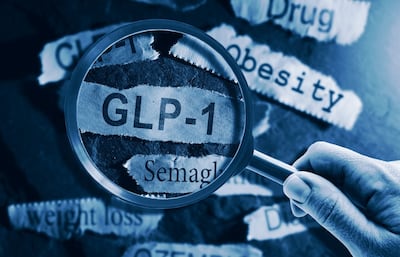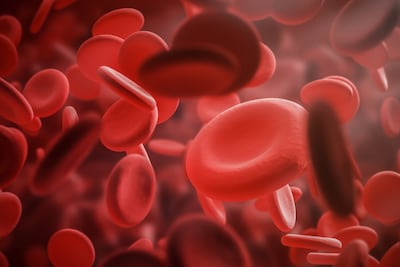Key Takeaways
- Merck’s newly approved monoclonal antibody Enflonsia for RSV is one of the products expected to be reviewed by ACIP in June; any lengthy delay could impact financial guidance.
- CEO Rob Davis said he is taking HHS’s statement that a June meeting will take place as scheduled at face value, despite the lack of advisors.
- ACIP has also been set to review a single dose of Gardasil for HPV and has been preparing for a new Lyme disease vaccine.
Health and Human Services Secretary Robert F. Kennedy Jr.’s decision to abruptly retire all 17 members of the US Centers for Disease Control and Prevention’s Advisory Committee on Immunization Practices (ACIP) two weeks ahead of a scheduled meeting has left vaccine developers wondering what the action will mean for products awaiting recommendations.
The committee’s next meeting, scheduled for June 25-27, is still set to take place, according to HHS, but there is no indication who the advisors making recommendations will be and the expectation is that they could be more aligned with Kennedy’s skeptical vaccine views. Kennedy announced his plan to reimagine ACIP in a 9 June Wall Street Journal editorial, with a goal to “re-establish public confidence in vaccine science.”
While no formal agenda is available for the June ACIP meeting, Merck & Co.’s newly approved monoclonal antibody Enflonsia (clesrovimab) is expected to be among the products discussed by advisors. Enflonsia was approved by the US Food and Drug Administration on 9 June for the prevention of respiratory syncytial virus (RSV) lower respiratory tract disease in newborns and infants, just hours before Kennedy’s announcement.
Despite FDA approval, ACIP’s recommendations are vital for vaccines and similar products, paving the way for their commercial use and reimbursement. A delay in recommending Enflonsia in June could push back a recommendation until the next scheduled meeting in October, when the RSV season is about to hit full swing. In that case, Merck could find itself in a tight window for launching commercially, given the timeline for the peak RSV season, insurance negotiations and stocking patterns.
Merck is already behind entering the commercial market, with Sanofi/AstraZeneca’s Beyfortus (nirsevimab), a similar antibody, having been approved for RSV in 2023. Sanofi already confirmed it is accelerating shipping of Beyfortus to give providers more time to prepare for the RSV season.
Merck’s Davis Reacts
Merck CEO Rob Davis discussed the developments during the Goldman Sachs Global Healthcare Conference on June 10, saying it’s early to fully understand the implications.
“They did say that the June meeting is going to happen, so you take it at its face that they’ve indicated there will be a meeting in June, and so we assume that will continue to be the case,” Davis said.
“We’re going to have to see who are the individuals brought in to replace the current group, so a lot of questions yet to be answered,” he added. “But I pivot back to what I do know, which is the safety and efficacy of our vaccines we are very confident in.”
When clesrovimab was discussed by ACIP in April in anticipation of the upcoming approval, he noted the review was “fairly non-controversial.”
Merck’s financial guidance for the year does include sales of Enflonsia during the 2025-2026 RSV season. “That continues to be our assumption,” Davis added.
The ACIP shakeup raises uncertainty for vaccine manufacturers, analysts said. But Cantor analyst Carter Gould pointed out in a June 9 note that if the new advisors are prepared to make recommendations in June, Enflonsia could still get the green light.
“This would likely have been a straightforward positive recommendation supporting use in neonates or infants born during or entering their first RSV season. And even with the uncertainty around the panel, this still seems like easy ground for the panel to find agreement and avoid delays,” he said.
Leerink’s David Risinger, in a June 9 note said the ACIP turmoil overall raises risk to vaccine manufacturers.
“At best, it will take time for the new members to ramp up on the content and ACIP process, which could delay less controversial recommendations such as for Merck’s pediatric RSV monoclonal antibody, clesrovimab,” he said. “At worst, the committee could upend current recommendations for novel and existing vaccines.”
William Blair analyst Myles Minter agreed the overhaul could present a challenge to the vaccine development space. But he pointed to a silver lining as well: “With ACIP remaining in place, this outcome is less disruptive than it could have been, with disbandment one of the fears following RFK Jr.’s appointment.”
Gardasil Single Dose And Lyme Preparations Under Way
In the Federal Register notice announcing the June ACIP meeting, CDC said matters to be considered include discussions on anthrax vaccines, chikungunya vaccines, COVID-19 vaccines, cytomegalovirus (CMV) vaccine, Human papillomavirus (HPV) vaccine, influenza vaccines, Lyme disease vaccine, meningococcal vaccines, pneumococcal vaccines, RSV vaccines for adults and RSV vaccines for maternal and pediatric populations. (See chart below.)
During ACIP’s April meeting the group began preparing to review Sanofi’s quadrivalent meningococcal vaccine MedQuadfi in infants and toddlers, AstraZeneca’s FluMist Home and Pfizer’s Lyme disease vaccine, which is in Phase III. ACIP formed a new working group on Lyme disease and presentations on epidemiology, burden and clinical manifestations were planned for the June meeting.
ACIP is also expected to review a new single-dosing regimen for Merck’s HPV vaccine Gardasil, a potential headwind to Merck’s revenues for the vaccine. Two doses are currently recommended for most individuals who start the series before the age of 15, six to 12 months apart. Three doses are recommended for those starting as older teenagers, ages 15-26. But some data from other countries has shown long durability of a single dose of the vaccine.
Merck, however, during the Goldman Sachs meeting said that in discussions with the FDA, the agency has felt strongly that changing the FDA label would require studies in men and women because the single-dose studies that have been conducted outside the US were only in women and only looked at immunogenicity.




